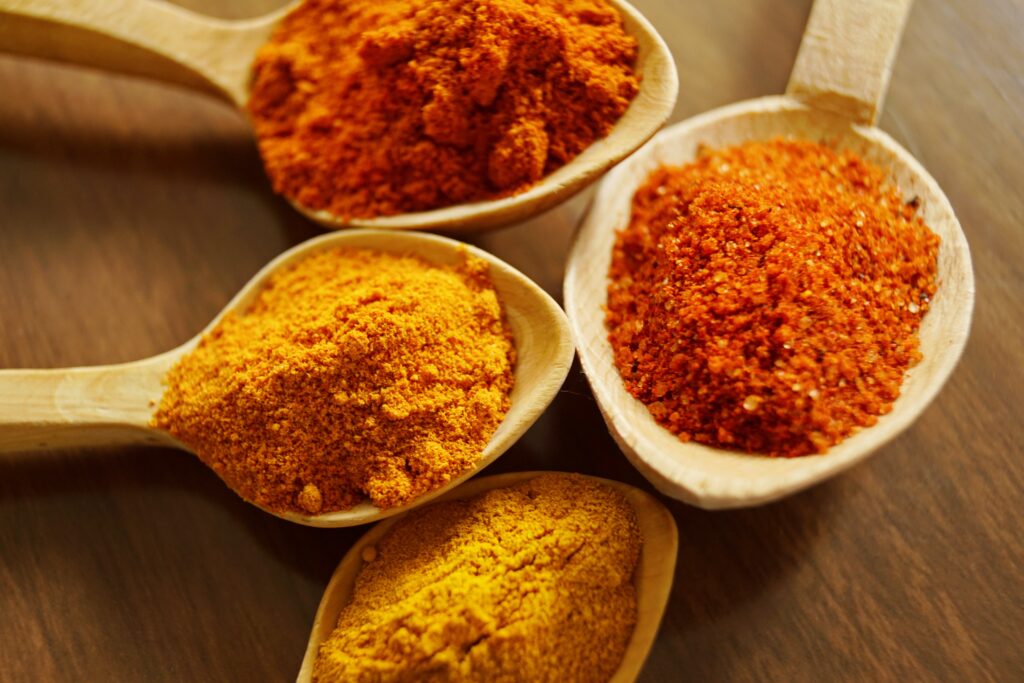Seven Incredible Health Benefits of Turmeric Everybody Knows!

Turmeric, derived from the root of the curcuma longa plant, is a spice that has captivated the western world in recent years. With its vibrant golden color and distinct flavour, turmeric has found its way into a variety of recipes and beverages, such as the popular turmeric latte. But did you know that turmeric offers more than just culinary appeal?
1. Alleviates Inflammation
Chronic inflammation can have detrimental effects on our bodies, but turmeric may offer a natural solution. A study conducted on patients with ulcerative colitis revealed the potential of turmeric to ease this painful condition. When combined with prescription medication, a daily intake of 2 grammes of curcumin, the active compound in turmeric, increased the chances of achieving remission. While it may not provide immediate relief during flare-ups, turmeric shows promise for extending periods of remission.
2. Enhances Memory
As we age, maintaining optimal cognitive function becomes very important. Luckily, turmeric may hold the key to preserving our memory. Research has shown that a daily dose of 90 milligrammes of curcumin over 18 months improved memory performance in adults without dementia. By reducing brain inflammation and acting as an antioxidant, curcumin may help slow down the decline in neurocognition. Although more research is needed, turmeric could potentially play a role in preventing the development of Alzheimer’s disease.
3. Relieves Pain
Turmeric has been used in traditional Chinese medicine and Ayurveda for centuries to alleviate pain, particularly in arthritis. Preliminary studies indicate that turmeric extract may reduce pain associated with osteoarthritis. However, it is crucial to note that turmeric supplements should not replace prescribed medications. While turmeric shows promise, it is always recommended to prioritise medical management.
4. Fights Free Radicals and May Reduce Cancer Risk
Turmeric possesses potent antioxidant properties that can neutralise harmful free radicals in our bodies. A study conducted by the Department of Medicine at the University of California, San Francisco, demonstrated turmeric’s ability to reduce oxidative stress, which is closely linked to the initiation and progression of cancer. Curcumin, found in turmeric, has shown both antioxidant and prooxidant properties, making it a potentially powerful ally in the prevention and treatment of cancer. Additionally, turmeric’s antioxidant effects have been linked to a 40% reduction in colorectal lesions in men.
5. Reduces the Risk of Heart Disease
Maintaining a healthy heart is essential for overall well-being, and turmeric may contribute to cardiovascular health. By reducing inflammation and oxidation in the body, turmeric has the potential to lower the risk of heart disease. In a study involving middle-aged and older adults, the consumption of curcumin supplements for 12 weeks led to an increase in resistance artery endothelial production, a significant factor in high blood pressure. Furthermore, another study discovered that individuals who took 4 grammes of curcumin daily before and after coronary artery bypass surgery exhibited a 65% decreased risk of a heart attack during their hospital stay.
6. Helps Manage Cholesterol Levels
Combining turmeric with medication may assist in managing cholesterol levels. Research has shown that curcumin, the active ingredient in turmeric, is safe and effective in lowering certain cholesterol levels. While further investigation is necessary to determine the optimal amount and type of turmeric to consume, it is promising to know that turmeric might offer a natural option for individuals at risk of heart disease.
7. Supports Mental Health and Combats Depression
Depression can have a profound impact on our lives, and finding effective treatments is crucial. Interestingly, curcumin has been found to boost levels of brain-derived neurotrophic factor (BDNF), a protein associated with depression. By increasing BDNF levels, curcumin may reverse the negative changes caused by depression and improve mood. Additionally, curcumin may elevate the levels of serotonin and dopamine, neurotransmitters that regulate mood and cognitive function. While curcumin is not a substitute for professional treatment, incorporating it under the guidance of a healthcare professional may reduce the dependence on certain chemical drugs.
In conclusion, turmeric’s vibrant colour and distinctive taste are not its only remarkable qualities. This spice offers a range of potential health benefits, including reducing inflammation, improving memory, relieving pain, fighting against free radicals and cancer, lowering the risk of heart disease, managing cholesterol levels, and supporting mental health. By incorporating turmeric into our diets, we may unlock its incredible potential and improve our overall well-being.



Comments are closed.